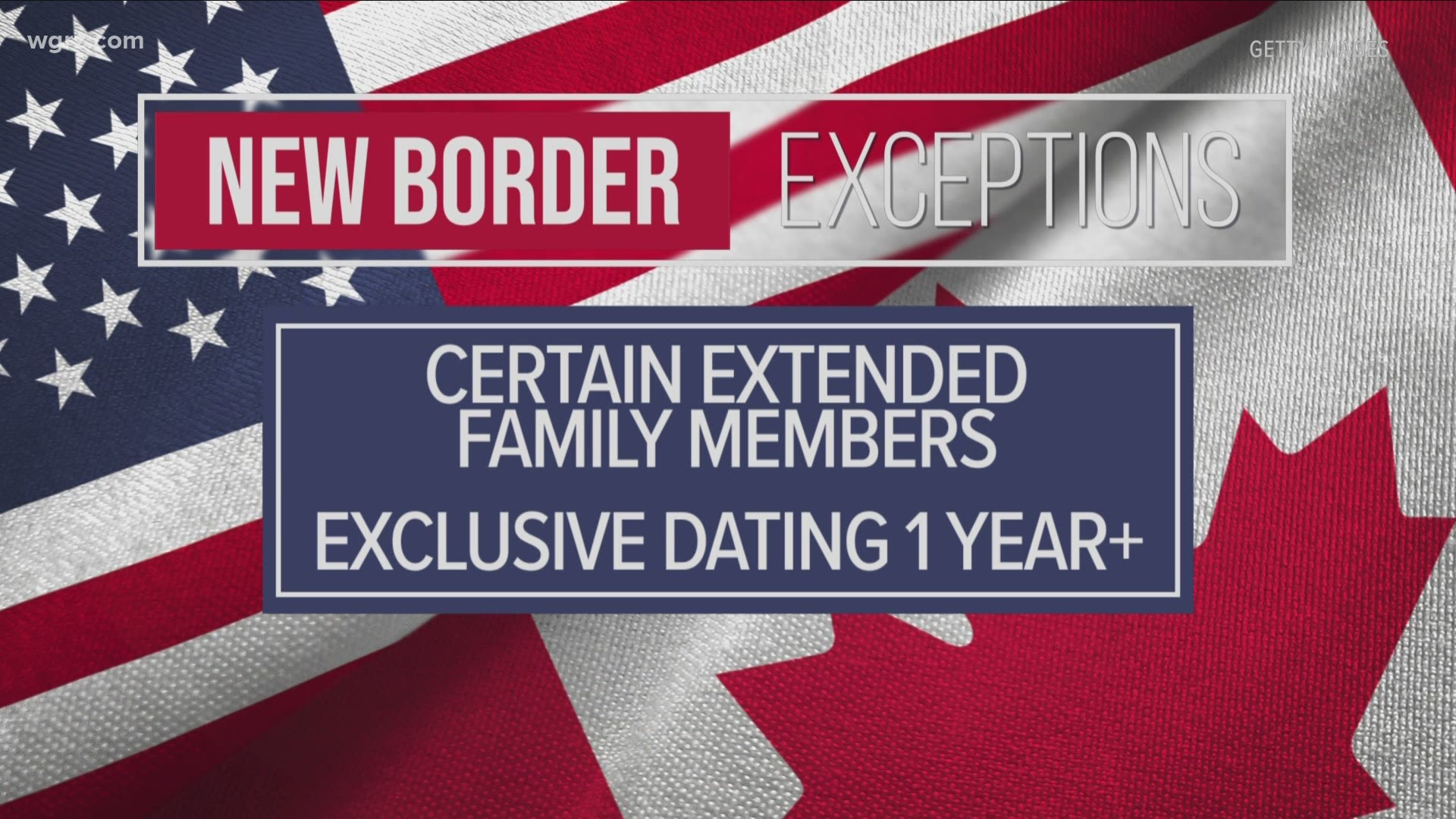OTTAWA, ON — If you have family in Canada, it might not be much longer before you can see them.
However, you will need pre-approval from the Canadian government to cross the border.
On Friday, the Canadian Government announced that it will share new procedures on Thursday that will allow some extended family members, international students, and people with compassionate reasons to cross the border.
Canada says there will be a "robust process" in place where travelers will have to apply for and be granted an authorization before they can travel.
“Canadians made sacrifices, often heartbreaking, to respond to this new virus," the Honorable Patty Hajdu, P.C., M.P., minister of health for Canada, said in part.
"While we want to be compassionate, we also need to manage the risk of community spread, and we must all continue to be vigilant."
The new procedures are expected to allow the entry of:
- Some extended family members of Canadian citizens and Canadian permanent residents. Some family members include those in an "exclusive dating relationship of at least one year and their dependent children, as well as adult children, grandchildren, siblings and grandparents."
- International students who are attending Canadian schools with a recognized COVID-19 readiness plan.
- People who have compassionate reason for entry, such as "life-threatening illness, critical injury, or death."
The Canadian Government says more details about who may qualify as extended family will be announced on Thursday.
The government also urged anyone interested in traveling under the new guidelines not to make travel plans just yet. Travelers should wait until they meet the requirements and have the authorization in hand.
The new rules and procedures released Thursday will be available on the Canadian Government's Immigration, Refugees and Citizenship website for families, and the Public Health Agency website for those with compassionate reasons.
Quarantine in Canada
Canada, like New York, also has restrictions for travelers, including a quarantine for anyone entering the country.
Quarantine is required for all travelers to Canada, unless they receive an exemption or approval for a limited release for compassionate reasons.
Travelers can be turned away at ports of entry if they display COVID-19 signs or symptoms. Travelers provide information to Canada, including contact information, when entering the country.
The Canadian Government says it is strengthening enforcement efforts, with calls made to travelers regarding their entry into Canada and quarantine. Additionally, some violations of the Canadian Quarantine Act can result in jail time or fines.

